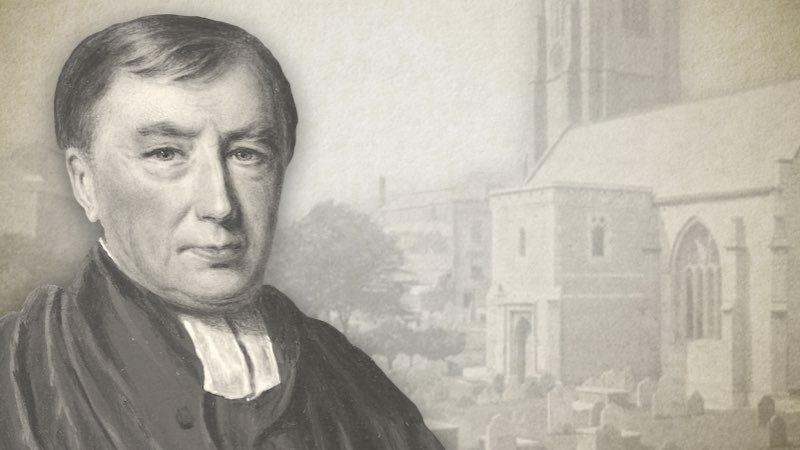
July 10—Morning Devotion
“And he is before all things, and by him all things consist.”—Colossians 1:17
How doth the apostle mean that Jesus is before all things? Not as God only, for then the observation would have been needless; and not as man only, for then how could all things consist by him? What is it then, my soul? Is it not as Mediator, both God and man? And was not Christ thus set up from everlasting? Not openly revealed indeed, neither openly manifested in a body of flesh, until the fulness of time; but secretly, and in the divine counsels. What a blessed thought for the redeemed to exercise their rapturous meditations upon! And is it not this which the apostle hath said;” He is the image of the invisible God?” The image! Yes, that representation of what is in itself invisible; that identical image concerning which Jehovah when calling Adam into existence, said, “Let us make man in our image, after our likeness.” So then Adam was the first man indeed openly, but not so secretly; for it is plain that Adam was made after this likeness which was set up from everlasting. Hence this union of natures, subsisting in one person, formed the one glorious Mediator, who is, and was, before all things, and by whom all things consist. Here is the foundation then of the church, and that from everlasting: without this, the church, and indeed all things beside, had wanted foundation. For there is nothing created that can stand out of God; and there was nothing created that could stand in God, by a personal union, but him. What a glorious thought! Cherish it, my soul! Never lose sight of it. In Christ the Mediator, all things consist. The church is preserved, redeemed, sanctified, glorified: and how are all his redeemed ones personally and individually secured, but by the same? By him all things consist. Hence their consisting is in him; they are living in him, feeding on him, made righteous in his righteousness, and hereafter will be glorified in his glory. My soul, think what a world of mysteries thou art in; think what an unspeakable life, is a life of grace here; think what a world of glory in Jesus hereafter. Now see if thou canst better enter into an apprehension of those divine words of Jesus: “Because I live, ye shall live also.” And again: “At that day ye shall know that I am in my Father, and you in me, and I in you.”
Robert Hawker (1753-1827) was an Anglican (High-Calvinist) preacher who served as Vicar of Charles Church, Plymouth. John Hazelton wrote of him:
“The prominent features…in Robert Hawker's testimony…was the Person of Christ….Dr. Hawker delighted to speak of his Lord as "My most glorious Christ.” What anxious heart but finds at times in the perusal of the doctor's writings a measure of relief, a softening, and a mellowing? an almost imperceptible yet secret and constraining power in leading out of self and off from the misery and bondage of the flesh into a contemplation of the Person and preciousness of Christ as "the chiefest among ten thousand and the altogether lovely." Christ and Him crucified was emphatically the burden of his song and the keynote of his ministry. He preached his last sermon in Charles Church on March 18th, 1827, and on April 6th he died, after being six years curate and forty-three years vicar of the parish. On the last day of his life he repeated a part of Ephesians 1, from the 6th to the 12th verses, and as he proceeded he enlarged on the verses, but dwelt more fully on these words: "To the praise of His glory Who first trusted in Christ." He paused and asked, "Who first trusted in Christ?" And then made this answer: "It was God the Father Who first trusted in Christ."
Robert Hawker on the Biblical Covenants (Complete)
Robert Hawker's Poor Man's Morning Portions




